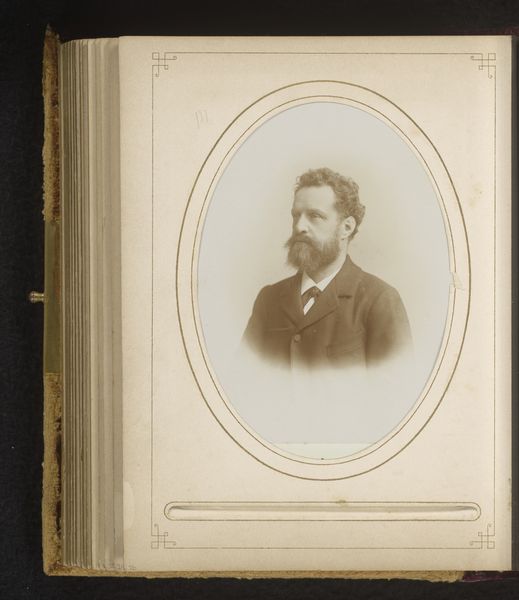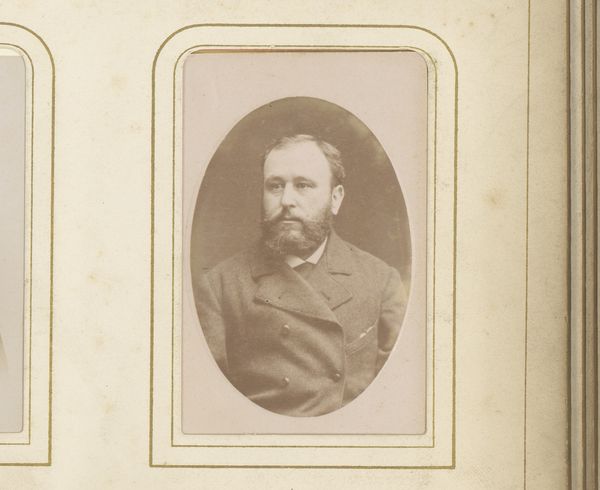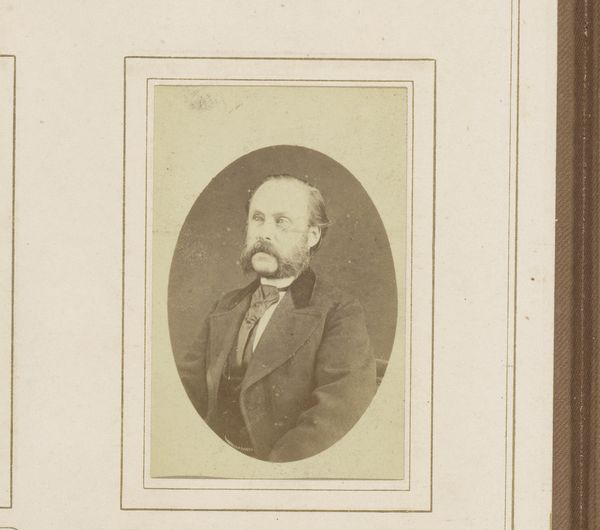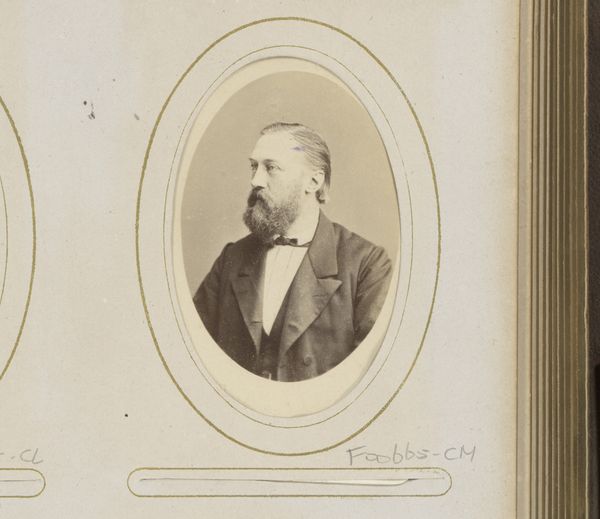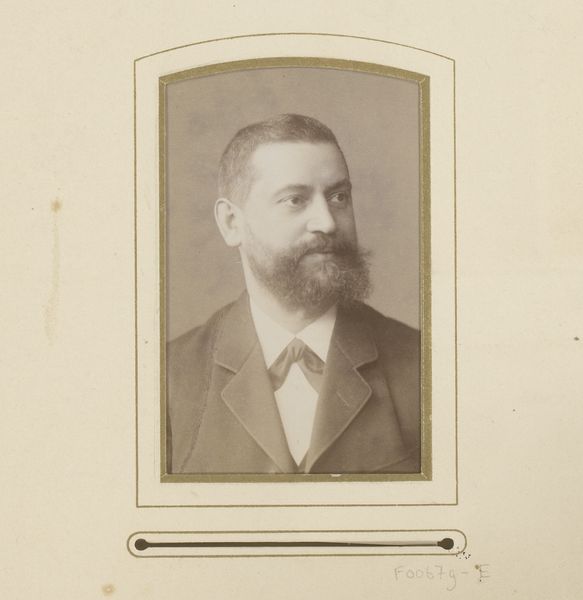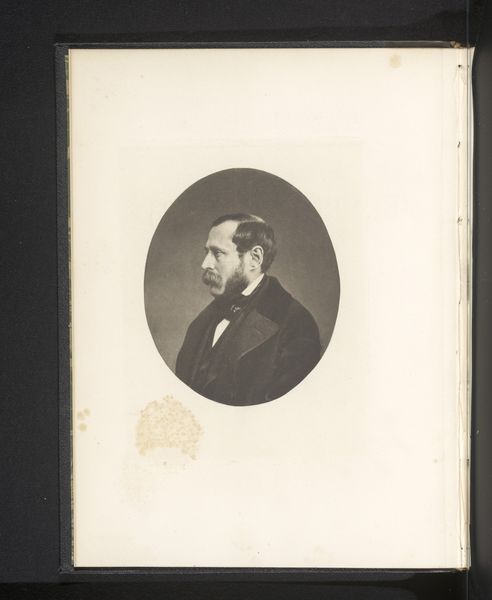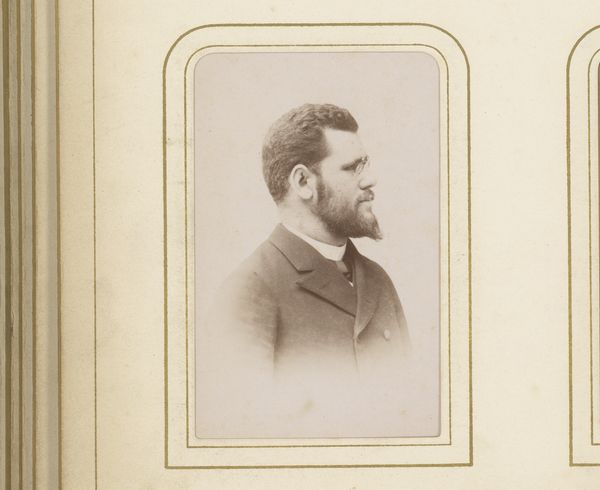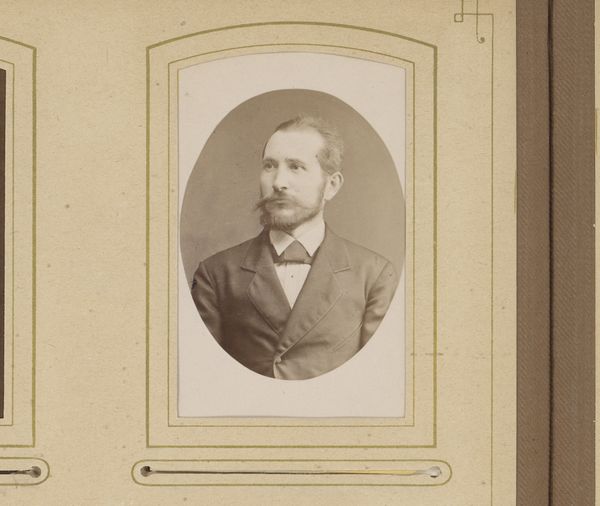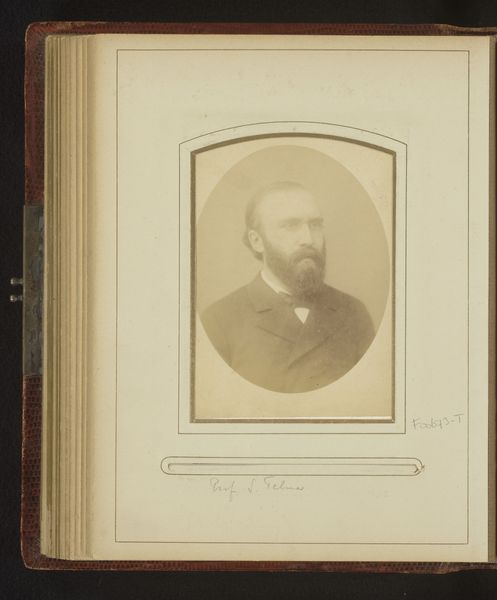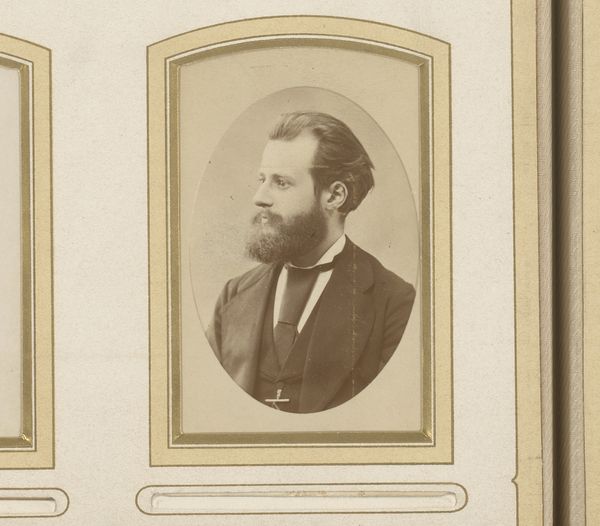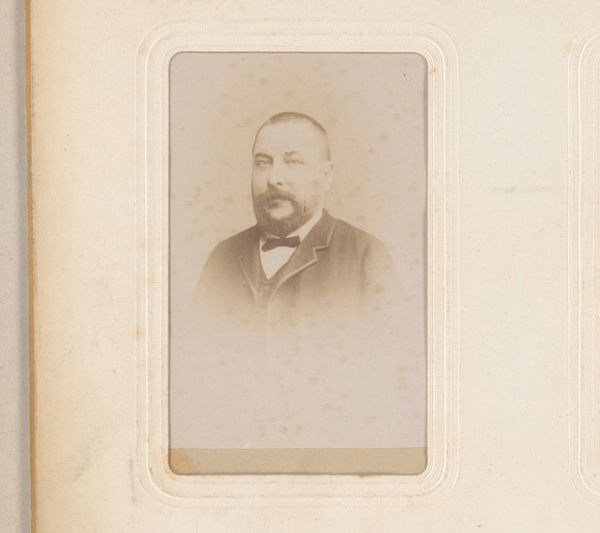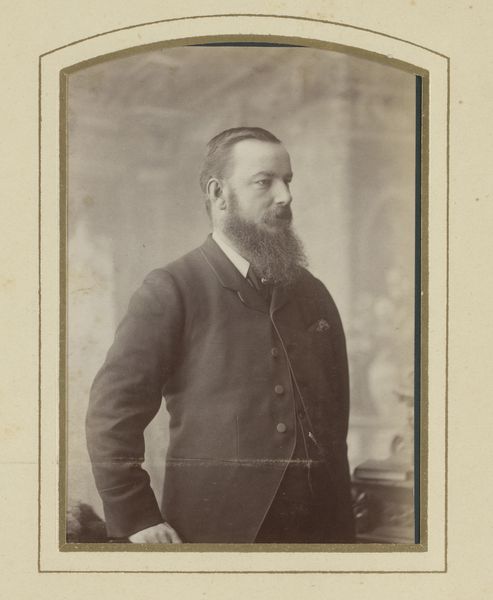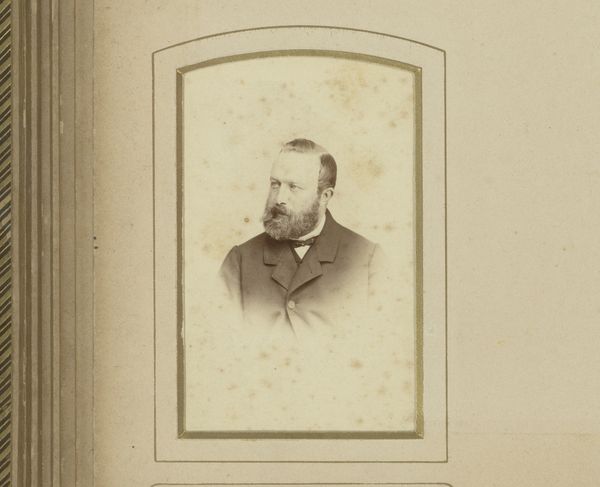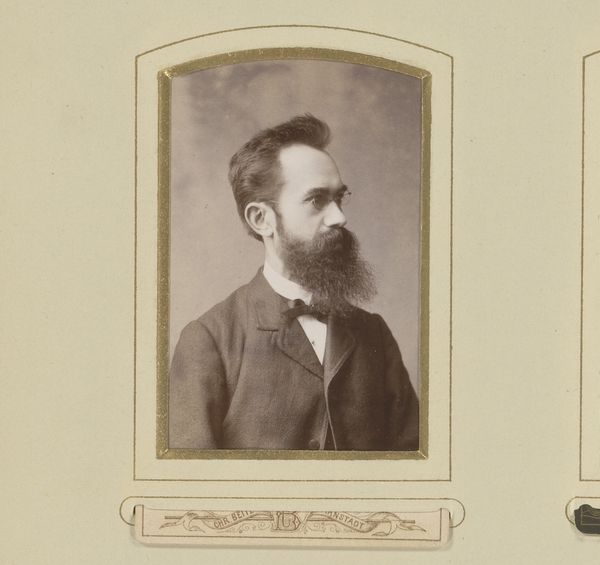
photography
#
portrait
#
aged paper
#
toned paper
#
16_19th-century
#
muted colour palette
#
photography
#
framed image
#
19th century
#
neutral brown palette
#
realism
Dimensions: height 306 mm, width 227 mm
Copyright: Rijks Museum: Open Domain
Etienne Carjat made this photographic print of Émile Zola in France sometime in the mid-to-late 19th century. Carjat was one of many photographers who made portraits of artists and writers during this period. These images circulated as a kind of currency within the cultural world of Paris. Here, Zola is presented as a serious man of letters, and he is seen to embody the modern intellectual. But what does it mean to be modern? France in the 19th century saw many revolutions, and was caught between the old aristocratic order and a more democratic future. Writers such as Zola saw themselves as agents of modernity, who would show the world as it really was, and expose its injustices. This image is interesting, because it captures Zola, the champion of social justice, as he presents himself to the world. To understand this image better, we can look at the history of photography and its relationship to the art world. We can also research the history of French Republicanism and its impact on literature and the other arts.
Comments
No comments
Be the first to comment and join the conversation on the ultimate creative platform.
